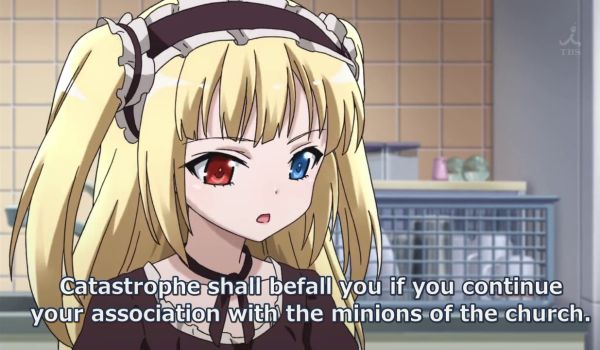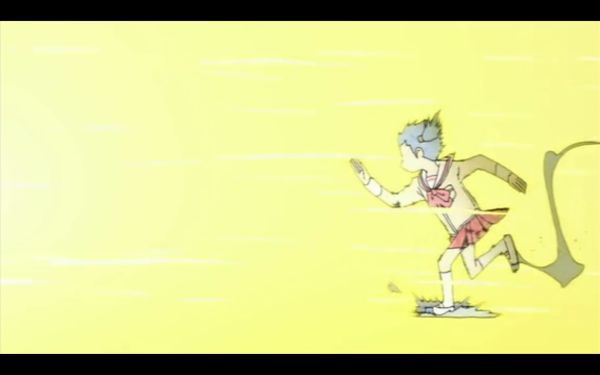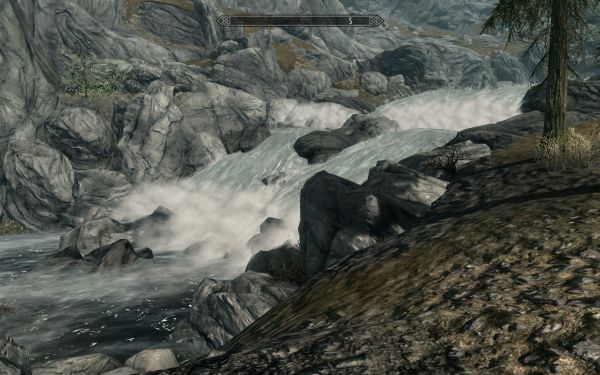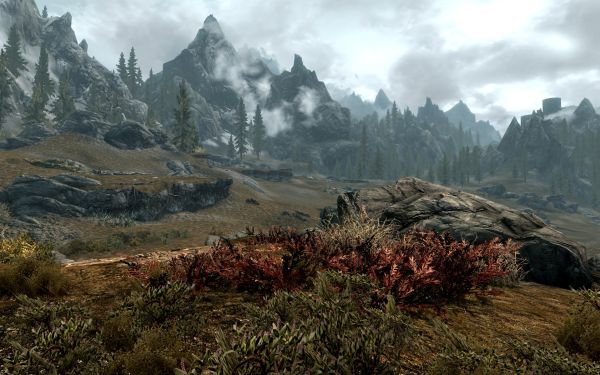
“Catastrophe shall befall you if you continue your association with the minions of the church.” I suspect a good portion of my acquaintances would come to a similar conclusion. Or for that matter my relatives. I better explain myself!
Intriguingly, the books of wisdom and piety that manage to capture my attention these last few months are Catholic. That may not surprise everyone, but it sure surprises me.
I grew up in a Norway that was recently started to become post-Christian (I think my generation was the first that never even pretended to be religious except for the minority who actually were). But before that, Lutheran Protestantism had been almost alone and universal in the land. And it did not think highly of Catholicism. In Norwegian  there is no separate word for “venerate”, so we were told that Catholics worshiped saints. They had specific saints for specific careers or situations; I am not sure whether we were pointed out that this was similar to the pagan pantheons, or whether I found that out by myself. But it was kind of obvious.
Then there was the whole inquisition thing and the massive burning of witches and heretics. Like most young people I thought the witch burnings happened in the Middle Ages (the vast majority of the cases were much later, and Protestant countries were not exactly better). I may even for a few years have believed the ridiculous claims of millions of witches being killed. (There were a few thousand, each of them meticulously documented. While more women than men were accused, the percentage of death sentences was higher for male witches. But enough about that – the fact that it was popular in Protestant countries shows that it was not a Catholic thing as such. I did not know that until recent years though.)
Then there is the whole thing about bribing God with coin to free relatives from Purgatory. According to what church history was still taught, this was what caused Luther to break with the Pope and form a purer branch of Christianity. The absurdity of priestly celibacy was also pretty damning here in Scandinavia, I suspect.
Even after I found that some of what I believed was caricature, that does not mean I automatically agree with the Catholic Church. The fact remains that it has been and to some degree still remains a political and economic force to reckon with, something that is utterly opposite of the life and teachings of Jesus Christ. And there is still some doctrine that is very hard to align with the Bible. For instance, the Bible makes no mention of Purgatory as such. And to prohibit people from marrying or bidding them to refrain from food are labeled as “demonic teachings” in the Bible. There better be better reasons for this than I have seen so far.
The reason why I came to even look at Catholic books is that they were mentioned and quoted at the One Cosmos blog, a curious place but one that caters to the religious intellectual. That is not something you see often, but the again I suspect it is not a large audience either. Not many wise in this world were called, after all. That said, you’d think some would become wise later, under the influence of religion. It certainly has helped me in that regard, as I am sure anyone will confirm who knew me when I was much younger.
Be that as it may, I came across quotes by intellectual authors like A.G. Sertillanges and soon after James V. Schall, who are very much non-preachy and excellent writers of universal wisdom. But evidently both Catholic, somewhat to my surprise. I ended up buying books by them both, and rather enjoying them (although the writing is not exactly beach literature). Hans Urs von Balthasar also seems interesting, although I have yet to buy any of his massive tomes. Perhaps if I suddenly stop aging. It might well take a lifetime to get through all his lifetomes, if one were to give them due consideration.
And now there’s Meditation on the Tarot by our would-be Unknown Friend. A bit heterodox in places, I would say, but the basics seem to be sound and very inspiring. It is rare for religious literature to be outright exciting, I think, but this can be, at least to some of us. It does require some time to immerse oneself in, though.
And then there’s Fire Within, the Kindle version of which I read on my commute. It is a treatise on the life and teachings of St Teresa of Avila (who is certified awesome, as I have said before) and St John of the Cross (who is kind of scary, what with the Dark Night of the Soul and all). The two of them evidently have a lot in common, including knowing each other, St Teresa being the first of them. Anyway, fascinating stuff. I recognize myself in the beginning of it, even though no one had told me any of it. That’s kind of disturbing, when you realize that the only person who has spoken to you of this before is God. Or whoever the voice in my heart is, I am pretty sure it at the very least channels God if it is not the Most High himself. This was how I learned meditation (or “contemplation” as it is evidently still called in Catholic tradition). It also throws light on the great difference I perceive between neo-Buddhist (technical) and Christian (devotional) meditation.
I may have just dumped into these particular writers by the luck of the draw. Perhaps there are just as excellent Protestant or Methodist books that I simply have not been exposed to. But given that even the current Pope has written a couple likable books, I can see how Amazon is now offering me a long list of Catholic classics when I visit them. I think I’ll take it slow though – the books I already have are such as deserve to be read slowly, and then, I believe, be read slowly again. We’ll see how that pans out – I am not exactly a monk, although my female friends may never know the difference. Unless they read my journal.









